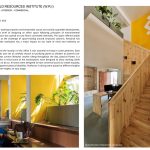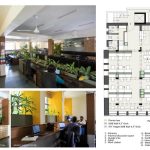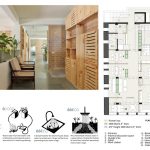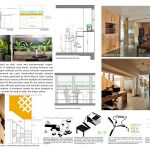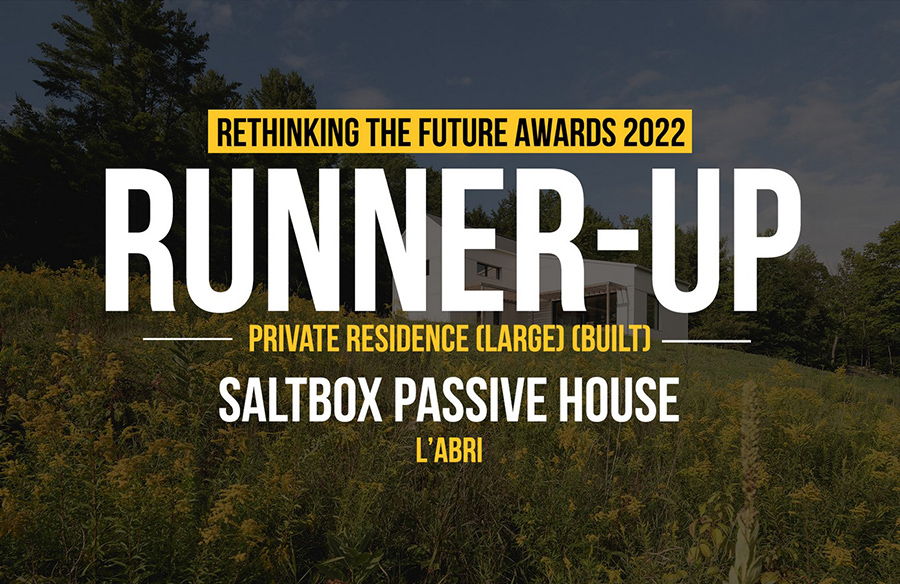WRI India is an organization working towards environmentally sound and socially equitable development, who approached us with a brief of designing an office space following principles of environmental sustainability. The leased space was spread on two floors connected internally. The space offered ample amount of daylight as well as the challenge of space-making around structural columns.
Global Architecture & Design Awards 2018
Honorable Mention | Interior – Commercial (Built)
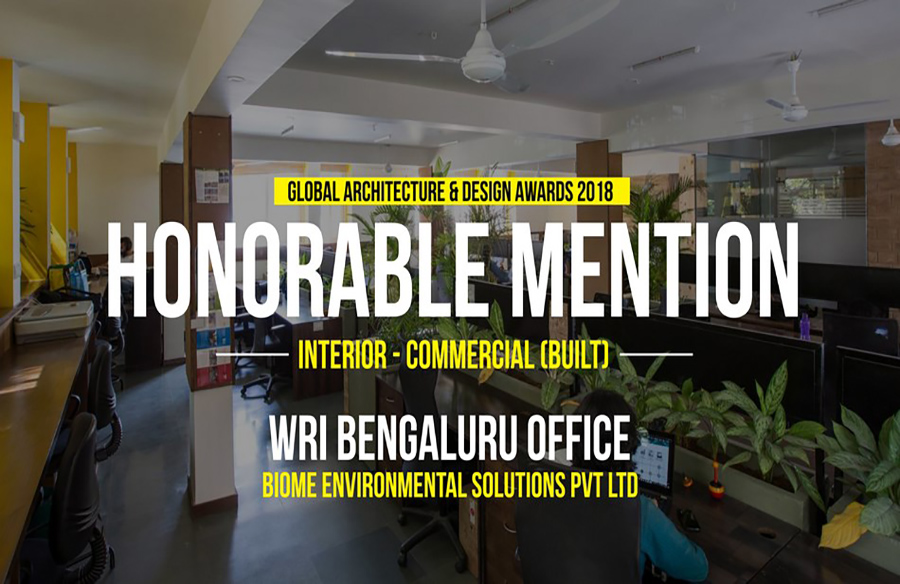
| Project Details | |
| Architects: | Biome Environmental Solutions Pvt Ltd |
| Team Members: | Anurag Tamhankar, Shibani Chaudhary, Ranganath L |
| Country: | India |
| COMPLETION DATE – | SEPTEMBER, 2016 |
| AREA – | 278.8 m2 |
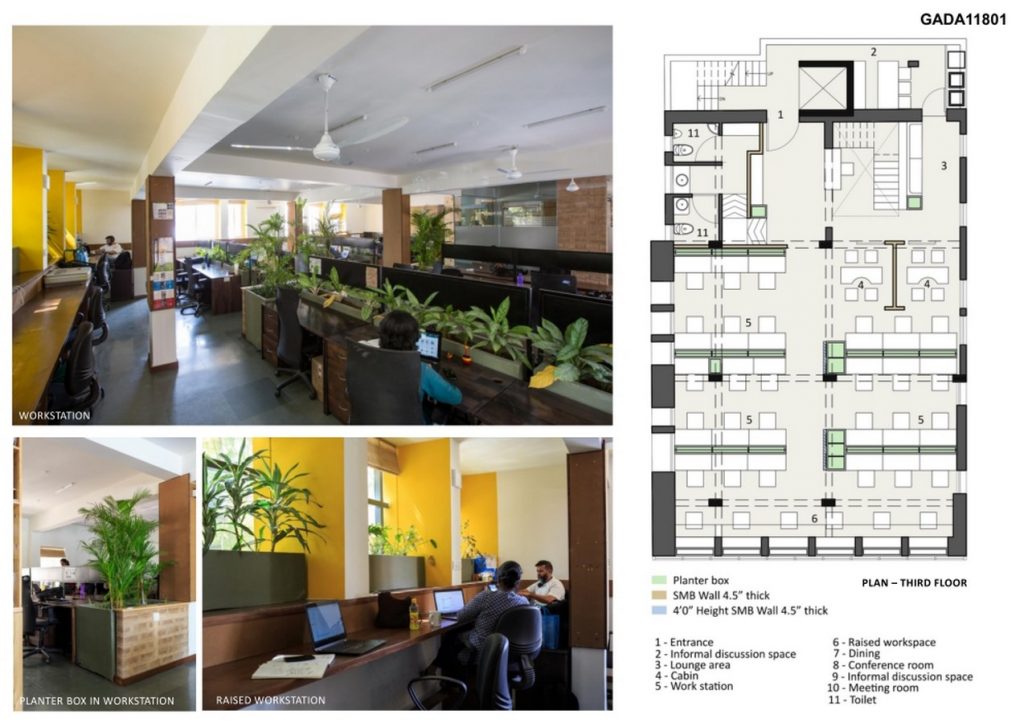
©Biome Environmental Solutions Pvt Ltd
Research has shown that the quality of the workplace has a major impact on our state of mind and indirectly on productivity. Given the nature of work and the location of the office it was essential to bring in some greenery. Each desk was designed to have its own set of carefully chosen air-purifying plants as dividers to prevent sick-building syndrome. Given that current lifestyles involve sitting throughout the day, physical fitness is a point of concern. Keeping this in mind some of the workstations were designed to allow working while standing if a person chooses to do so. All areas were designed to have universal access to create equality, accessibility going beyond apparent physical disability. Platforms in dining were placed at different heights to enable people with different heights an easy usage.
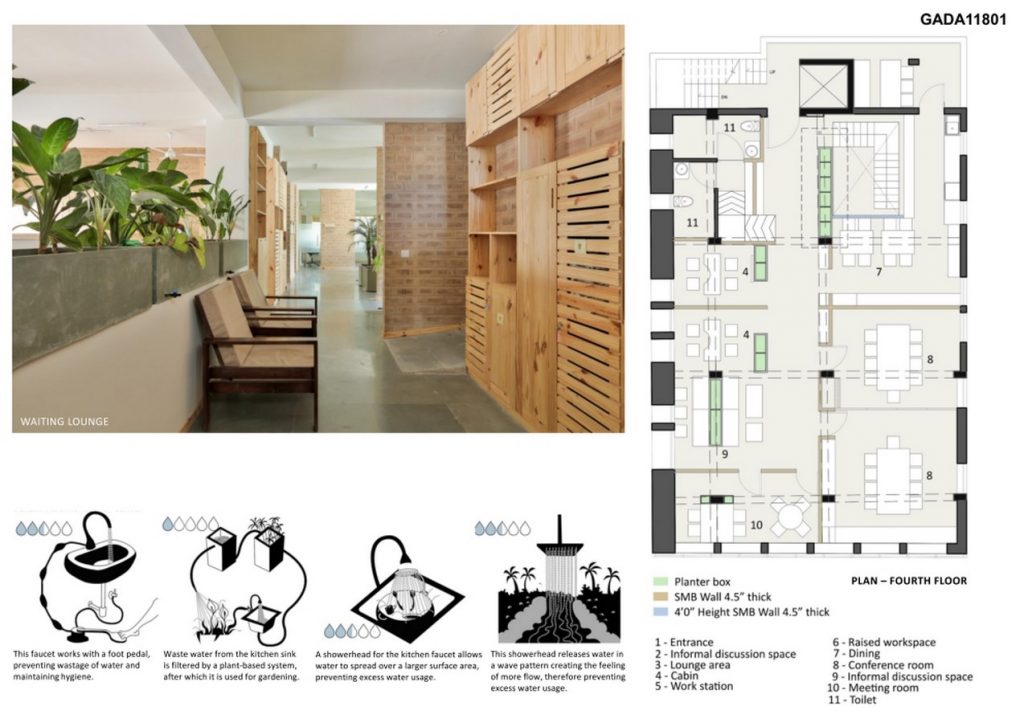
©Biome Environmental Solutions Pvt Ltd
Materials were chosen based on their social and environmental impact. Additional walls were made of stabilized mud blocks. Existing furniture was modified to avoid use of virgin materials and for excess furniture requirement fast growing plantation pinewood was used. Handcrafted durable, plantain fiber curtains are made from waste generated by food industry. Open seating arrangement has been worked out to ensure sufficient daylight and ventilation in all areas.
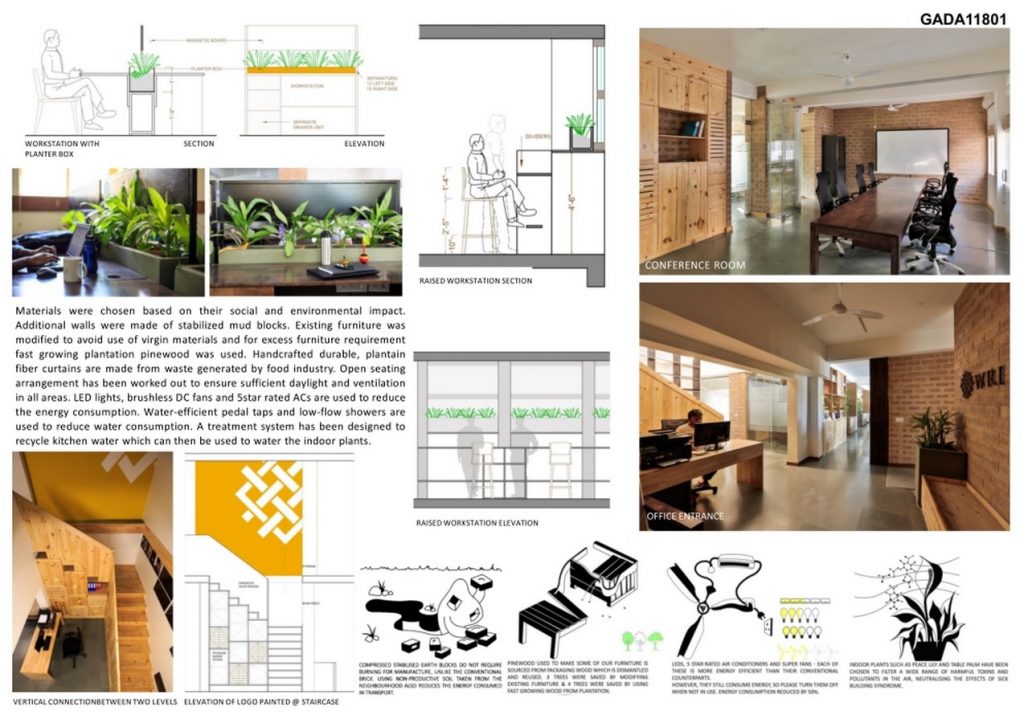
©Biome Environmental Solutions Pvt Ltd
LED lights, brushless DC fans and 5star rated ACs are used to reduce the energy consumption. Water-efficient pedal taps and low-flow showers are used to reduce water consumption. A treatment system has been designed to recycle kitchen water which can then be used to water the indoor plants.
- ©Biome Environmental Solutions Pvt Ltd
- ©Biome Environmental Solutions Pvt Ltd
- ©Biome Environmental Solutions Pvt Ltd
